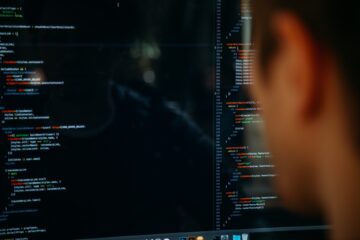In the world of software development, exceptions are like sudden roadblocks that can disrupt the smooth flow of code execution. These jolting exceptions, lurking within our programs, possess the power to halt processes, cause unexpected behavior, and challenge our problem-solving skills. As developers, it’s crucial to be well-versed in these exceptions to anticipate their occurrence, handle them gracefully, and ensure the reliability and stability of our applications.
In this article, we will embark on a journey through the labyrinth of jolting exceptions, exploring their nature, impact, and common scenarios where they tend to strike. While exceptions may seem daunting at first, we’ll navigate this intricate terrain together, shedding light on their quirks and demystifying their complexities.
Our expedition begins by understanding the essence of exceptions themselves. We’ll delve into the concept of exceptions as unexpected events that disrupt the normal execution flow of a program. We’ll examine how exceptions are raised and propagate through our code, becoming the catalysts for cascading effects that can either be harnessed to our advantage or leave us scratching our heads in bewilderment.
Throughout this article, we’ll encounter a myriad of jolting exceptions that can catch even the most experienced developers off guard. From the notorious NullPointerException to the elusive ConcurrentModificationException, we’ll unravel their causes, manifestations, and strategies to prevent them. We’ll explore their distinctive behaviors and the crucial role they play in guiding us towards writing robust, resilient code.
But this journey is not solely about unveiling exceptions; it’s also an exploration of our own coding practices. We’ll examine the common pitfalls and anti-patterns that pave the way for exceptions to rear their heads. By recognizing these pitfalls, we can fortify our code with defensive measures, ensuring that we’re prepared to tackle these jolting surprises head-on.
So, fasten your seatbelts and brace yourself for an expedition through the treacherous terrains of jolting exceptions. By the end of this journey, armed with knowledge and practical insights, you’ll be equipped to navigate the pitfalls, tame the unruly exceptions, and emerge as a more confident and resilient developer.
Let’s dive in!
List of Kotlin Exceptions
| Exception Name | Explanation |
|---|---|
| NullPointerException | This exception occurs when you try to access or manipulate an object that is null, meaning it does not reference any instance. It typically happens when you forget to initialize an object or when you incorrectly assume an object is not null. |
| IllegalArgumentException | This exception is thrown when a method receives an illegal or inappropriate argument. It indicates that the input provided does not meet the requirements or expectations of the method. |
| IllegalStateException | This exception signals that the state of an object is not suitable for the operation being performed. It usually occurs when a method is called but the object is not in the correct state to execute that particular operation. |
| IndexOutOfBoundsException | This exception occurs when you try to access an array, list, or string using an index that is either negative or greater than or equal to the size of the collection. It indicates that the index is outside the valid range of values. |
| ClassCastException | This exception is thrown when you attempt to cast an object to a type that is not compatible. It occurs when there is a fundamental type mismatch during the casting operation. |
| NoSuchElementException | This exception is raised when you try to access an element from a collection such as a list or a set, but the collection is empty, and no element exists at the requested position. |
| UnsupportedOperationException | This exception is thrown when an operation is not supported by the current implementation or when an object is in an immutable state, and a modification operation is attempted on it. |
| ConcurrentModificationException | This exception indicates that a concurrent modification was detected while iterating over a collection using an iterator. It happens when the structure of the collection is modified (such as adding or removing elements) during iteration. |
| NumberFormatException | This exception occurs when you try to convert a string to a numeric type (such as an integer or a float), but the string has an invalid format that cannot be parsed as a number. |
| ArithmeticException | This exception is raised when an arithmetic operation (such as division or modulo) fails due to exceptional conditions, such as dividing by zero or an integer overflow/underflow. |
| ArrayIndexOutOfBoundsException | This exception is thrown when you try to access an array element using an index that is outside the valid range of indexes for the array. It indicates that the index is either negative or greater than or equal to the array’s length. |
| SecurityException | This exception is thrown when a security violation is detected. It occurs when a Java security manager denies a requested operation or when a security-related error occurs during runtime. |
| InterruptedException | This exception is raised when a thread is waiting, sleeping, or occupied with another blocking operation, and it gets interrupted by another thread. It is typically used for thread synchronization and coordination. |
| OutOfMemoryError | This error indicates that the Java Virtual Machine (JVM) has run out of memory. It occurs when there is insufficient memory available to allocate new objects or when the heap space is exhausted. |
| StackOverflowError | This error occurs when the stack size allocated for a program’s execution is exhausted. It usually happens when a method calls itself recursively without a proper termination condition, causing an infinite recursion. |
| FileNotFoundException | This exception is thrown when an attempt to access a file or directory fails because the specified file or directory does not exist. It indicates that the requested resource could not be found on the file system. |
| IOException | This exception is the superclass for a wide range of I/O-related exceptions. It is thrown when an I/O error occurs during reading from or writing to a file, socket, or any other input/output operation. |
| MalformedURLException | This exception is thrown when an invalid or malformed URL is encountered. It indicates that the provided URL string is not well-formed and does not conform to the expected format of a URL. |
| SocketException | This exception is raised when an error occurs during socket-related operations, such as opening, closing, or reading from/writing to a socket. It indicates a problem with the underlying network communication. |
| ParseException | This exception is typically used in parsing operations, such as parsing dates or parsing strings in a specific format. It occurs when the input string does not conform to the expected format or cannot be parsed correctly. |
| SQLSyntaxErrorException | This exception is specific to database operations. It is thrown when an SQL statement is executed, but the syntax of the statement is invalid or incorrect, preventing its successful execution by the database engine. |
| DateTimeException | This exception is used in date and time operations when there is an error or inconsistency in the provided date, time, or datetime value. It occurs when there is an invalid combination of date or time fields. |
| JsonParseException | This exception is raised when an error occurs while parsing JSON data. It typically indicates that the provided JSON string is not well-formed or does not conform to the expected JSON syntax. |
| SocketTimeoutException | This exception is thrown when a socket operation times out because it took too long to complete. It occurs when a connection or communication through a socket exceeds the specified timeout value. |
| NoSuchFileException | This exception is specific to file operations. It is thrown when an attempt is made to access a file that does not exist or cannot be found at the specified path. |
| DateTimeParseException | This exception is thrown when there is an error during the parsing of date, time, or datetime strings. It occurs when the input string cannot be parsed according to the specified format or does not represent a valid date/time. |
| NoSuchMethodException | This exception is raised when a particular method is not found in a class or when you attempt to access a method that does not exist. It indicates that the requested method could not be found at runtime. |
| IllegalAccessException | This exception is thrown when there is a violation of the access control rules while attempting to access a field or invoke a method. It typically happens when you try to access a private or protected member from outside its scope. |
| AssertionError | This exception is thrown when an assertion check fails. It occurs when an assert statement evaluates to false, indicating that an assumption made by the programmer is incorrect or violated. |
| InputMismatchException | This exception is specific to input operations. It is thrown by a scanner when the input does not match the expected data type or format. It indicates that the input provided does not match the expected input pattern. |
| NoSuchAlgorithmException | This exception is raised when a cryptographic algorithm is requested, but the specified algorithm is not available or supported by the Java Virtual Machine (JVM) or the underlying security provider. |
| ArrayStoreException | This exception is thrown when an attempt is made to store an object of an incompatible type into an array. It indicates that the object being stored cannot be assigned to the array’s component type. |
| IllegalThreadStateException | This exception occurs when an operation is attempted on a thread, but the thread is in an illegal or inappropriate state for that operation. It typically happens when you try to start a thread that is already running or has terminated. |






